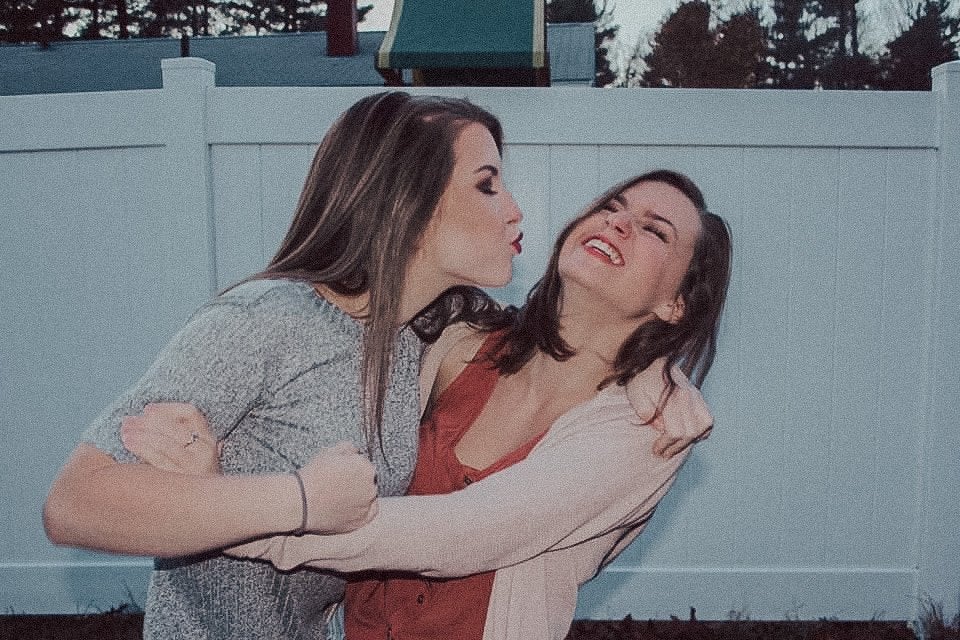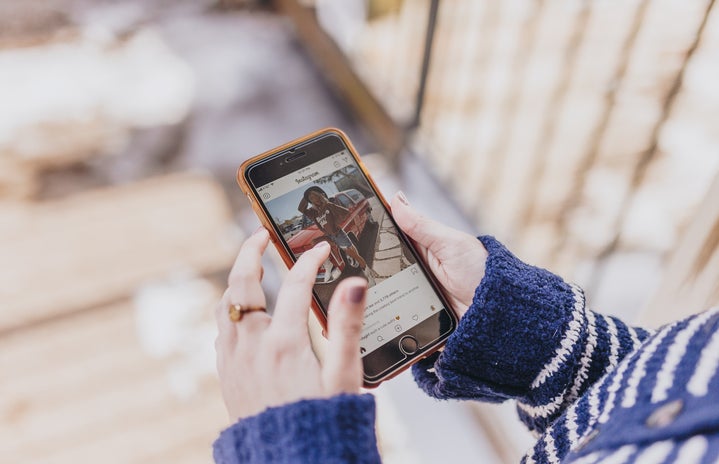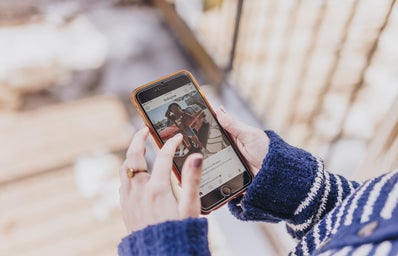In the last year and a half a new type of Instagram post emerged: the photo dump. Photo dumps maximize the app’s allotted ten images and seemingly align with the proposition to Make Instagram Casual Again. The new trend coined its title as such posts are comprised of a random set of images that would not, by the user’s standards, be significant enough to constitute a stand-alone post. The word “dump” enforces this idea: these posts are a mere collection of pictures that feel as if you are flipping through photos on someone’s camera roll. While there is, of course, no set-in-stone rules for what defines a photo dump, common sights appear: “silly” selfies, nature scenes, foodie photos, humorous pictures with friends, close-ups of jewellery, pets and occasionally screenshots of Spotify songs. If you are not an avid user of Instagram and happen to have never seen a photo dump, here are some examples from notable celebrities and influencers: Emma Chamberlain, Bella Hadid and Madison Beer all of which have taken part in this trend. As most of you probably know, however, the photo dump is not exclusive to the world of the L.A. elite.

I have taken advantage of the rise of this phenomenon on my own feed. Firstly, photo dumps are a great excuse to post a collection of relatively mediocre images that perhaps would not amass many likes on their own but can now be endearingly relevant in the context of the trend. As someone who does not frequently post on social media, photo dumps are an effective way to release a bunch of images that say, “Hi, followers, I’m alive and well and have been doing things for a while, as pictures in this post have been taken over the span of a month!” Photo dumps also act as a vehicle to upload images that do not show myself: as it has been recorded that pictures with people’s faces are more popular in the algorithm, I understand that book or tree photos will not have my followers inclined to press like. This is especially alluring to me as my inclination to take selfies has decreased over the years.
It is also worthy to note that the trend of photo dumps coincided with the pandemic. As people could not – or rather, should not – have gone on vacations and out to parties, there were less significant and interesting events to gleam over on social media. Instead, praise of the mundane became our only way to continue posting while in lockdown. Concerts and parties were put on hold and were evidently replaced by homemade sourdough bread, dogs out on walks and aesthetically pleasing PJ sets.
Celebrities and commoners alike have expressed affection – with the exception Rihanna – for the photo dump even as the world opens up, so what does this mean? I can deduct a few theories. For the famous, it is an easy and effective way to manifest an aura of relatability and authenticity to consumers. Long gone are the days of only seeing celebrities photographed on magazine covers, red carpets and stepping inside exclusive clubs: we can now watch them make their favourite pasta, cozy up on the couch with a glass of wine and play with their pets in the evening. None of this should be news to anyone, but try to imagine deified, past superstars like Marilyn Monroe and James Dean creating IGTVs whipping up their morning smoothie. It is impossible, at least for me, but now many modern day actors aim to create a facade of humanity and connect to their audience, such as Jennifer Garner’s weekly meditation check-in with Peloton Yoga instructor Dr. Chelsea Jackson Roberts or Reese Witherspoon posing with a mug gifted by her friend (who’s Drew Barrymore, of course). While the famous and not-famous binary used to be a strongly defined line, social media has made it so that the famous can appear like the people we know. Thus, photo dumps are an accessible format to both groups, especially in that the content of these posts is often immensely similar.
Regardless of how photo dumps unite us, it is critical to mention that the privilege and luxury of these celebrities still leak through. This is in no way deriding them, but perhaps should be taken into account if we subconsciously begin to compare our daily lives to what the famous portray to us in their posts. Consider Kylie Jenner’s photo dump: she is posing beside a glamorous Christmas tree in Louis Vuitton slippers, on a helicopter with her daughter Stormi and sitting with her in the seat of an expensive car. To Kylie, these may be everyday occurrences but to the common folk, these activities remain in the realm of the rich and famous. I do not believe that Kylie Jenner is sinister in uploading these photos, but to write “random little” in the caption of a post with her in a chopper, arguably, something that only someone with a net worth close to a billion dollars would do. The photo dump rather isolates and estranges her audience instead of offering a kind of solidarity, revealing that the absurd wealth and hedonism of the famous has only expanded since the days of Old Hollywood. Since celebrities do not have the obligation to appear as realistic figures, it is vital to deconstruct the mask of sincerity and homeliness that they may attempt to wear on social media.
As my camera roll continues to gather an odd mix of pictures from my new duvet cover to the cute wallpaper of a coffee shop, the photo dump remains a fun medium on Instagram to immerse myself in. While social media may inadvertently pressure us to only upload when we are doing something spectacular or caked in makeup, the casual and relaxed nature of photo dumps provide a way to amend this. Photo dumps, however, may not always be as laid-back and natural as we want them to be, especially when utilized by wealthy stars. Always remember that authenticity on social media will inevitably be curated and edited to put forth a certain persona, even if it is a persona that reminds us of ourselves.




